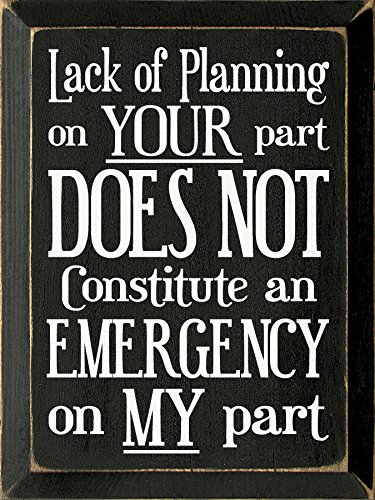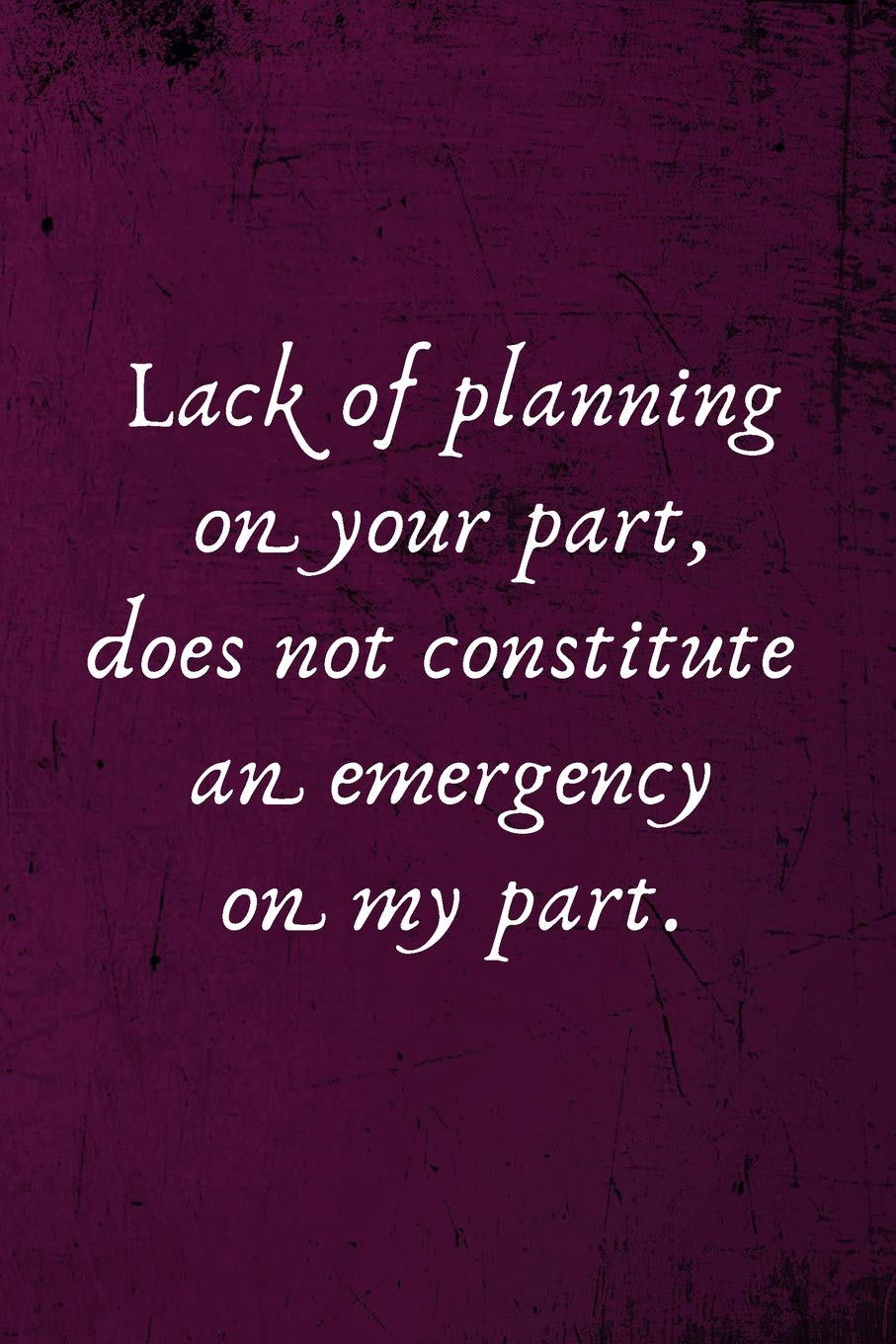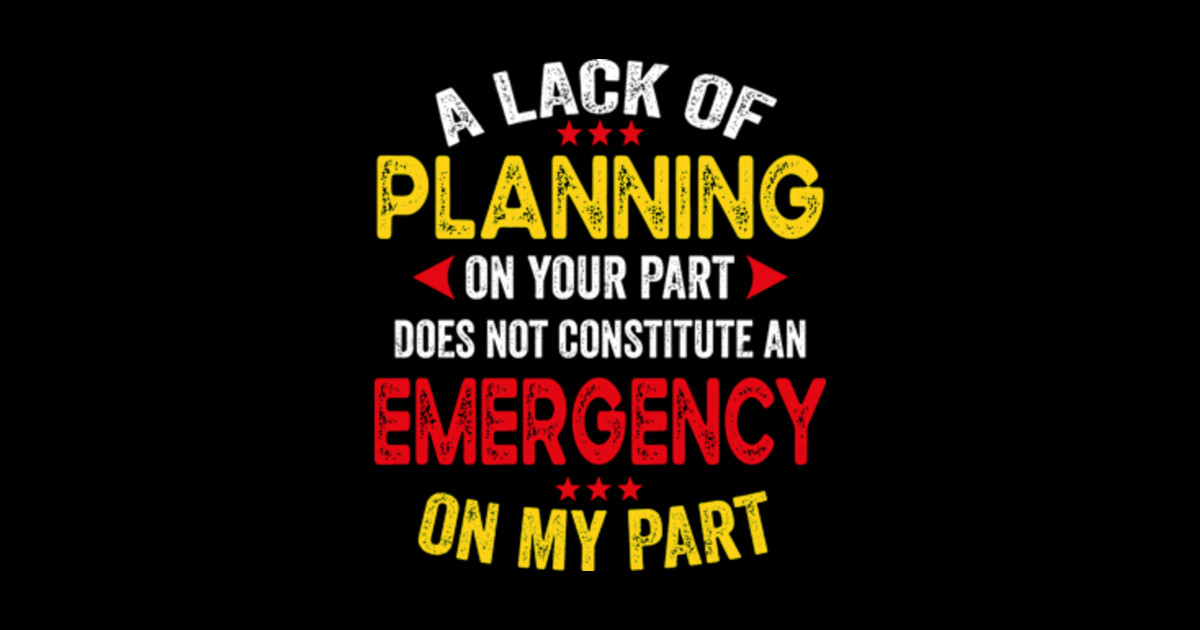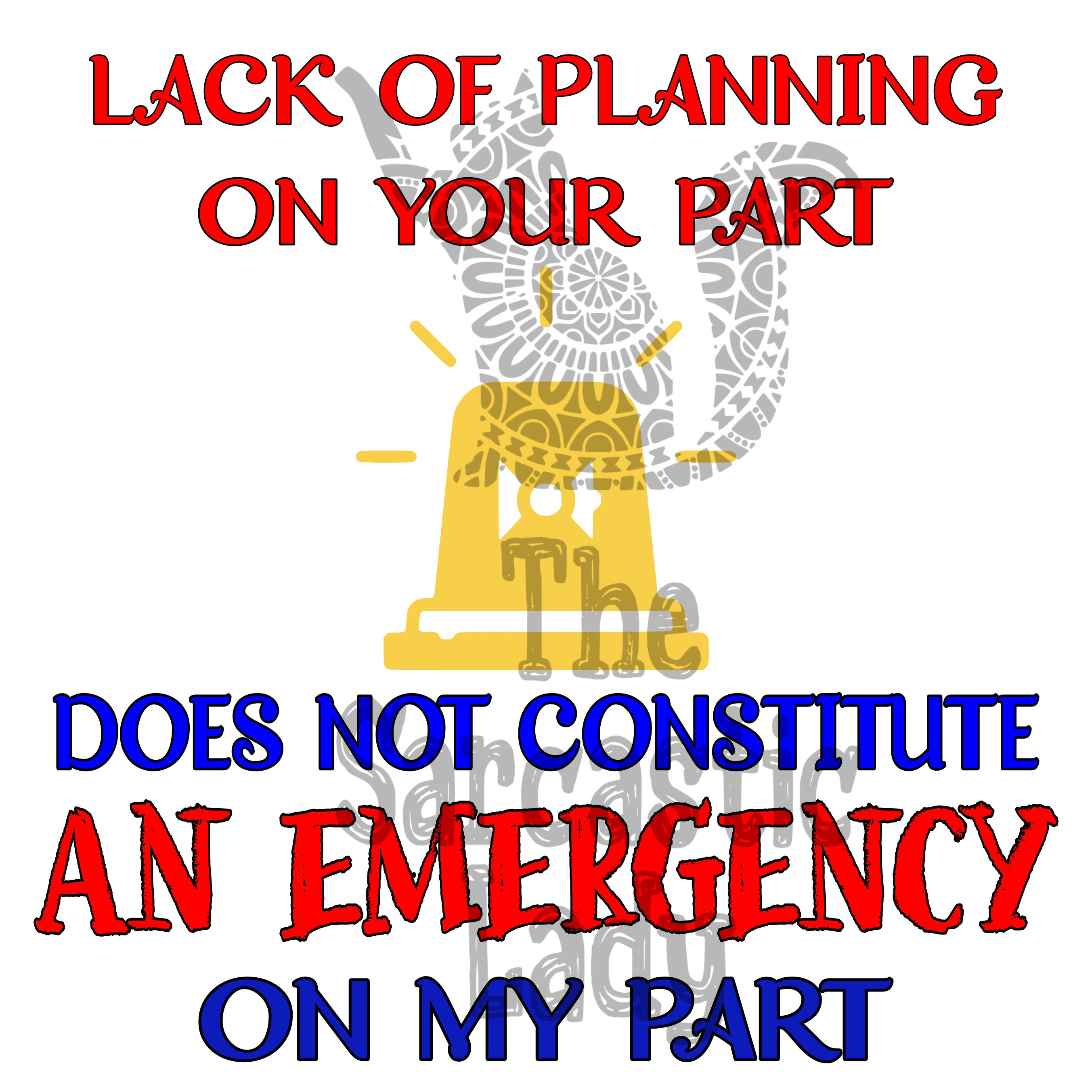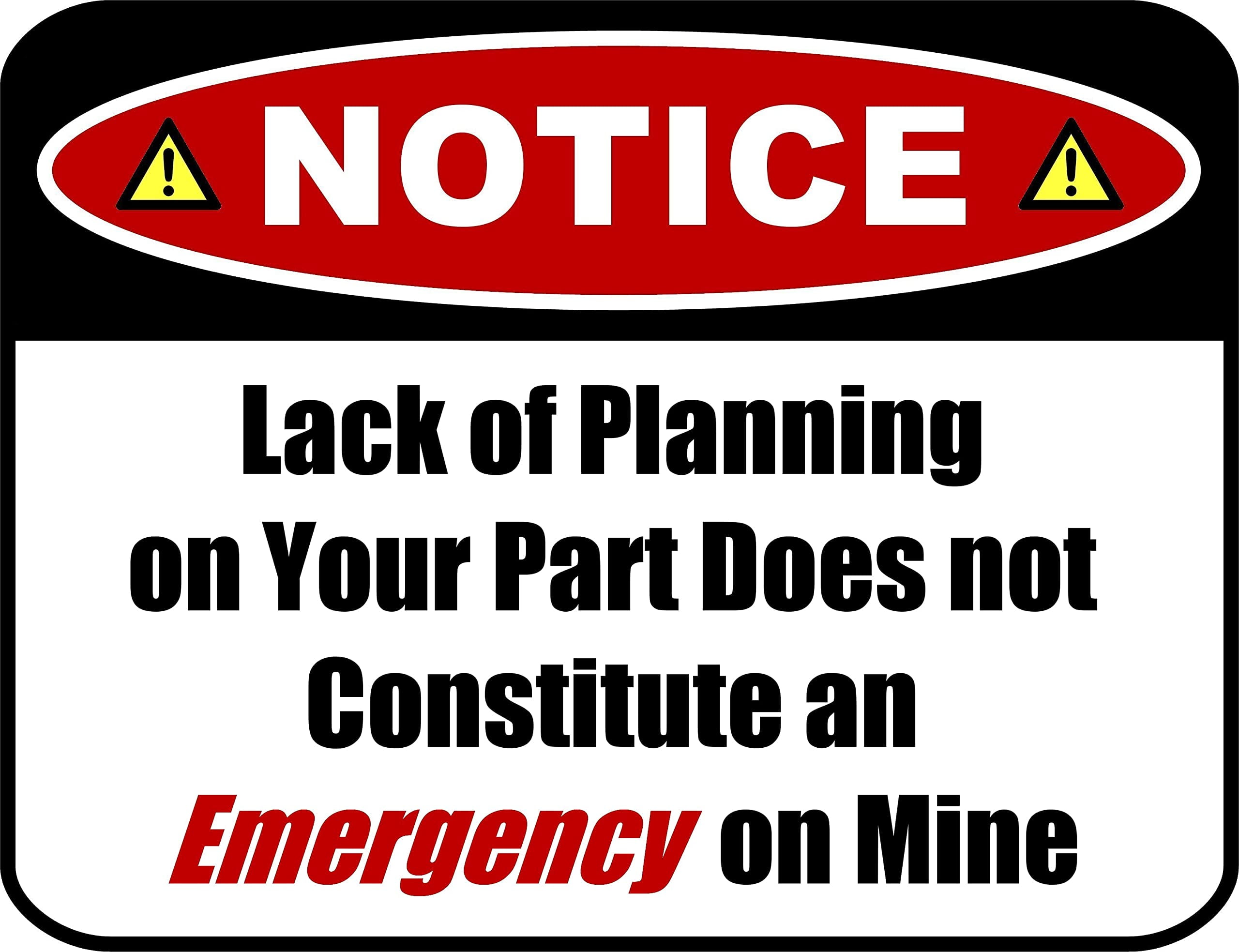Lack Of Planning On Your Part Does Not Constitute
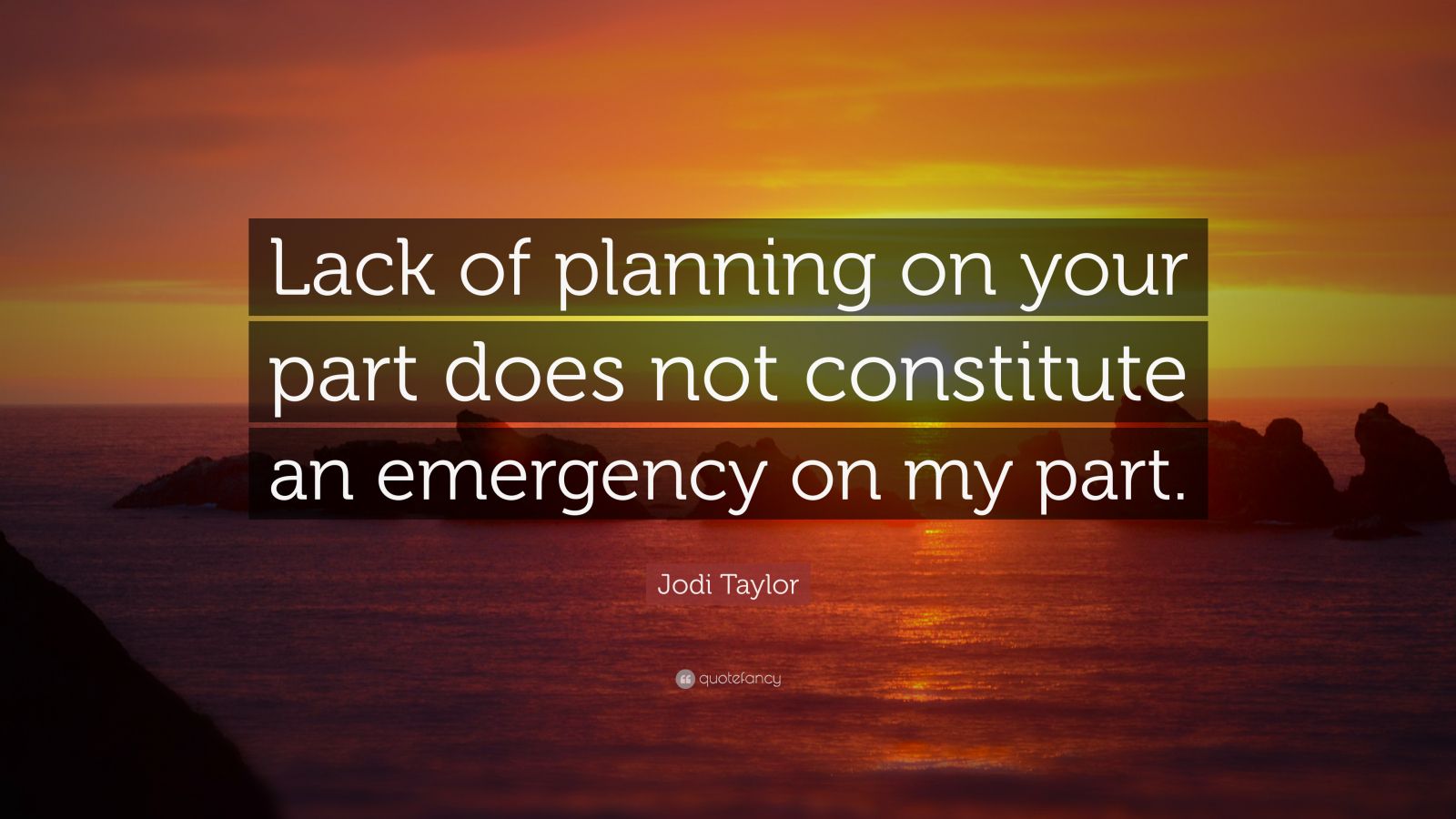
The aroma of freshly brewed coffee mingled with the scent of sawdust, creating a surprisingly comforting atmosphere in the bustling community workshop. Outside, the late afternoon sun cast long shadows across the neatly arranged tool benches, a visual reminder of the day’s dwindling hours. Inside, a quiet tension hung in the air, thick with the unspoken anxieties of project deadlines looming and materials inexplicably running short.
This seemingly minor scene encapsulates a pervasive issue affecting countless individuals and organizations: the chronic problem of inadequate planning. While external factors can undoubtedly derail even the most meticulously crafted plans, a significant portion of failures stem from a lack of foresight and proactive strategizing – a reality that echoes the age-old adage, “Lack of planning on your part does not constitute an emergency on mine.” This article will explore the multifaceted nature of this planning deficit, its consequences, and strategies for cultivating a more proactive and prepared mindset.
The Ripple Effect of Poor Planning
The consequences of inadequate planning extend far beyond missed deadlines and stressed-out workshop participants. Economically, poor planning leads to wasted resources, cost overruns, and decreased productivity. Socially, it can erode trust, damage relationships, and foster a culture of blame rather than accountability.
A recent study by the Project Management Institute (PMI) found that organizations lose an average of 11.4% of their investment due to poor project performance – a figure directly linked to insufficient planning and risk management. This financial strain impacts not only the organizations themselves but also the wider economy through reduced profitability and potential job losses. Data from the U.S. Bureau of Labor Statistics also indicates that industries with higher rates of project failure often experience slower growth and lower employee morale.
Consider the example of a small business launching a new product without conducting thorough market research. They might invest significant capital in production and marketing only to discover that there is little demand for their offering. This miscalculation can lead to substantial financial losses and potentially jeopardize the entire business, illustrating the critical importance of planning in mitigating such risks.
Understanding the Roots of Inadequate Planning
The reasons behind inadequate planning are varied and complex, ranging from individual shortcomings to systemic organizational issues. One common factor is a simple lack of time or prioritization. In today’s fast-paced world, many individuals and organizations feel pressured to focus on immediate tasks, neglecting the longer-term planning that is essential for sustainable success.
Another contributing factor is a lack of the necessary skills or knowledge. Effective planning requires a deep understanding of the project’s goals, resources, and potential challenges. Individuals who lack experience in these areas may struggle to develop comprehensive and realistic plans.
Procrastination and a fear of failure can also play a role. Some individuals avoid planning because they are afraid of confronting the potential difficulties or limitations that may arise. This avoidance, however, only exacerbates the problem, ultimately leading to more significant challenges down the road.
Organizational culture can significantly influence planning practices. In environments where planning is not valued or supported, individuals may be less likely to invest the time and effort required to develop effective strategies. A culture that punishes mistakes rather than encouraging learning can also discourage proactive planning, as individuals may fear being penalized for identifying potential problems.
Strategies for Cultivating a Planning-Oriented Mindset
Fortunately, the problem of inadequate planning is not insurmountable. By adopting a proactive and strategic approach, individuals and organizations can significantly improve their ability to anticipate challenges, mitigate risks, and achieve their goals. The first step is to recognize the importance of planning and prioritize it accordingly.
Time Management and Prioritization
Allocate dedicated time for planning activities, even if it means sacrificing short-term productivity. Break down large projects into smaller, more manageable tasks, and create realistic timelines for each stage. Use tools and techniques such as Gantt charts and project management software to track progress and identify potential bottlenecks.
Skill Development and Training
Invest in training programs and workshops to develop the necessary planning skills. Seek out mentors or coaches who can provide guidance and support. Encourage cross-functional collaboration to leverage diverse perspectives and expertise.
Embracing a Culture of Learning
Create a safe and supportive environment where individuals feel comfortable sharing their ideas and concerns. Encourage open communication and feedback. View mistakes as learning opportunities and use them to improve future planning processes. Establish clear accountability and ownership for planning activities, ensuring that individuals are responsible for developing and executing their plans.
Utilizing Data and Technology
Leverage data analytics and technology to gain insights into past performance and identify potential risks. Use forecasting tools to predict future trends and anticipate potential challenges. Implement robust risk management processes to identify, assess, and mitigate potential threats.
Consider the example of a hospital implementing a new electronic health record (EHR) system. By conducting thorough needs assessments, developing detailed implementation plans, providing comprehensive training to staff, and utilizing data analytics to track progress, the hospital can minimize disruptions and ensure a successful transition. This proactive approach can prevent costly errors, improve patient care, and enhance overall efficiency.
The Power of Proactive Thinking
The old adage, "By failing to prepare, you are preparing to fail," holds true in virtually every aspect of life. While unforeseen circumstances can always arise, a proactive and well-considered plan provides a framework for navigating challenges and maximizing opportunities. It empowers individuals and organizations to take control of their destinies and achieve their full potential.
In conclusion, while unexpected events and unforeseen challenges will inevitably occur, the key takeaway is that consistent, thoughtful planning is not merely an option but a necessity. Cultivating a culture of proactive strategizing, investing in the development of planning skills, and embracing a learning mindset are essential for success in an increasingly complex and unpredictable world. The alternative – relying on reactive responses and crisis management – is a recipe for stress, inefficiency, and ultimately, failure.
So, as the workshop lights dimmed, and the last of the participants gathered their belongings, the lesson lingered in the air: embracing the power of planning is not just about avoiding emergencies; it's about building a future where those aromatic coffees are sipped in a spirit of accomplishment, not desperation.

